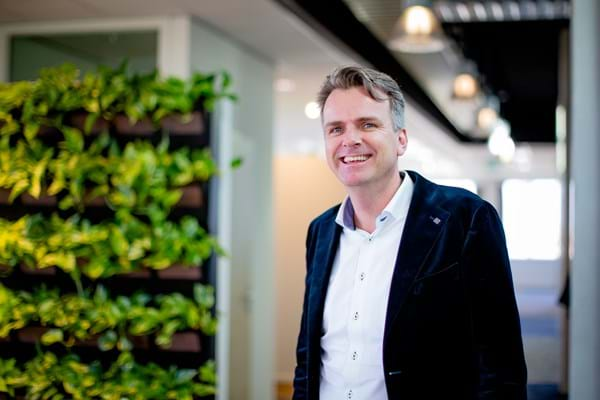Only six months ago, it would have been a normal reflex. If a serious customer on the other side of the world was interested in a greenhouse, we would be on the plane already. Now we launch Teams, the video call program. Covid-19 has not only changed our personal lives, but our business lives too.
We know about all the suffering and sadness that the virus has brought. That is not what I want to write about here. I have particularly discovered that Covid-19 has acted as a kind of wake-up call. The wake-up call that our traditional way of working cannot be taken for granted.
What a change manager might have needed six months to achieve, a microscopic virus did in a few weeks. We had long known about the benefits of using Teams for meetings. Except that we never used it. Booking a ticket was an almost automatic reaction.
'Delivering' a greenhouse online
But we could do much more via the Internet. Who would have thought that a supervisor could 'just' manage a construction team remotely via the camera? Or that we could even deliver a project online? Impossible, we sometimes said internally. Just as I had my doubts about the feasibility of introducing Office 365 in a couple of months, so that everyone could work remotely. But Covid-19 even managed that.
Thanks to our 'new' - now six-year-old - building, we are almost back to normal working in the office, socially distanced of course. Because apart from work-related meetings, social contact is ultimately indispensable.
Is the sector changing?
These are short-term changes. Will Covid-19 also change our sector in the long term? I haven't got a crystal ball. However, I can see that while the accent used to be on food safety, that has now changed. Now it's about food security. Yes, local production was already being promoted. With the outbreak of coronavirus, however, economies worldwide have been alerted once again to the importance of self-sufficiency. With closed borders and no air traffic, it is hard to get enough fresh food if it is not grown in our own country.
That may provide an incentive for the investment plans of governments and investors. It is quite likely that KUBO and other members of the Dutch Greenhouse Delta - more about that elsewhere in the newsletter - will therefore receive more requests. In the long term, this may mean that a country will become self-sufficient more rapidly and will no longer need Dutch vegetable imports. Mad idea? In Russia, they eat Edam cheese, 'made in Russia'. Production started after the trade boycott which also affected Dutch cheese exporters.
A second spike?
It is now mid July. In the Netherlands, the situation seems to be under control. Elsewhere, there are new outbreaks of the virus. We need to hope that everyone has learned from the situation. And that there won't be a second spike with all the negative repercussions which that involves. Besides bringing huge suffering, Covid-19 has taught us something else: the idea that the world can suddenly stop and that nothing can be taken for granted.
Wouter Kuiper

